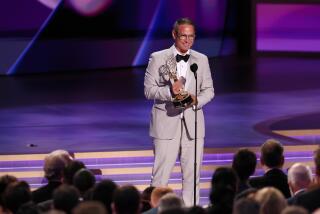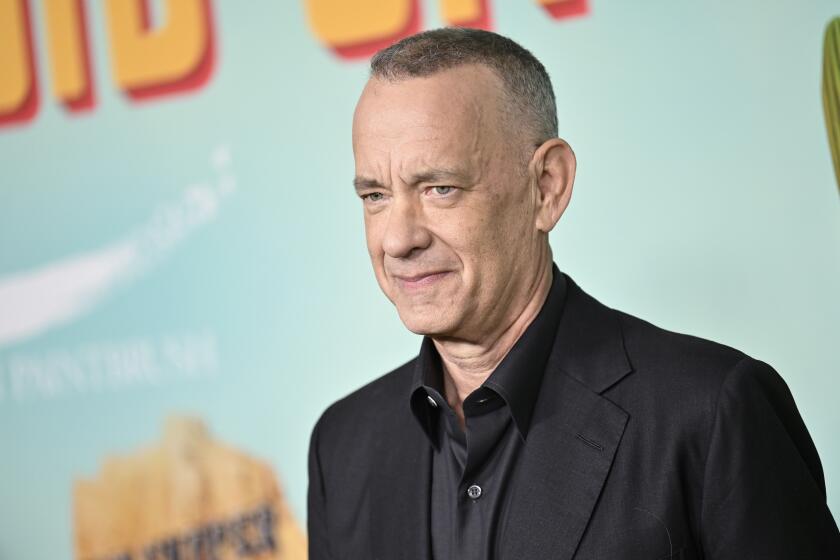Oscars 2016: Co-producer Reginald Hudlin talks about his ‘daunting’ task
When news broke Tuesday that Reginald Hudlin and David Hill would produce the 88th Oscars, Hudlin was on a studio set, directing an episode of NBC’s upcoming medical drama “Heartbreaker.”
“My phone’s blowing up with emails and texts and I was trying to shoot this liver transplant scene,” Hudlin says, laughing. “I wanted to answer some of them right then, but I had to make sure the blood spilled just right.”
Hudlin now faces a task just as intricate and intense and, as he puts it, “daunting” -- producing the world’s biggest awards show, a telecast rich in tradition but not immune to viewers’ fickle disposition. This year’s Oscars lost nearly 15% of its audience from the year before, a drop that could be attributed to a slate of little-seen movies and nominees as well as a sluggishly paced show.
“When I first met David, we were throwing around ideas and talking about the immense challenges of producing this show,” Hudlin says. “And at one point, I said, ‘Let’s stop doing this. We’re going to talk ourselves out of taking the job.’”
SIGN UP for the free Essential Arts & Culture newsletter >>
Hudlin brings an expansive resume and impressive set of contacts to the assignment. He began his career writing and directing the funny and inspired teen comedy “House Party” and then made “Boomerang” with Eddie Murphy. He was president of entertainment for BET Networks from 2005 to 2008, produced Quentin Tarantino’s “Django Unchained” and last year’s Governor’s Awards and has been the executive producer of the NAACP Image Awards since 2012.
------------
For the Record
Sept. 2, 4:57 p.m.: An earlier version of this article said Hudlin was president of entertainment for BET Networks until 2009. He left in 2008.
------------
Asked if he’d be concentrating on that long list of contacts -- he has worked with past Oscar host Chris Rock as well as Murphy, who was in line to host in 2011 -- Hudlin laughed and then added Martin Lawrence’s name to the mix.
“It’s early,” Hudlin says. “There are so many possibilities.”
Like Hill, his producing partner, Hudlin strongly believes the Oscar telecast needs to find a way to make viewers care about the nominees outside the acting, directing and best picture categories.
“That’s 75% of the show,” Hudlin says. “Sure, when you think about the Oscars, you think about the glamour and the movie stars, but most of the show is about folks -- writers, cinematographers, costumers, sound technicians -- that people don’t see all the time. These are brilliant people and we want to make sure viewers are engaged in their categories.”
Hudlin applauded the film academy’s efforts to broaden the diversity of its membership and honor filmmakers such as Spike Lee, who will receive an honorary Oscar at this year’s Governors Awards in November. He says he and Hill will continue that push to the extent they can.
“The most important part of the show is the nominees and they’re chosen by the studios [in who they submit for awards consideration] 18 months before the telecast,” Hudlin says. “All we can do as producers is make sure the show reflects our society and our artistic community. I love great documentaries, profound chamber dramas and big popcorn movies. I want the Oscars to celebrate all of them.”
Twitter: @glennwhipp
More to Read
Only good movies
Get the Indie Focus newsletter, Mark Olsen's weekly guide to the world of cinema.
You may occasionally receive promotional content from the Los Angeles Times.











